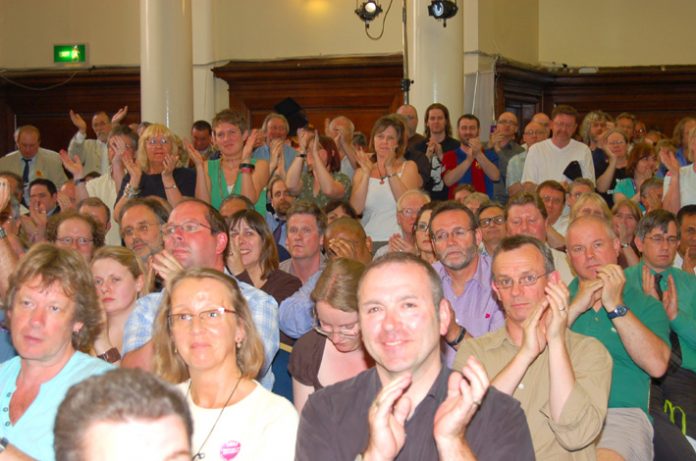
UNISON’s local government members in England, Wales and Northern Ireland have voted by 55% to 45% for a programme of sustained strike action over a 2.45% pay offer, the union announced yesterday.
‘We are proposing initially a two-day strike in July, and then we will go from there, because the employers are refusing to go any further,’ UNISON Head of Local Government Heather Wakefield said.
UNISON added that its negotiating team will decide today what action to recommend to the national strike committee that meets on Friday 27 June.
UNISON General Secretary Dave Prentis said: ‘This is a solid vote for action and a clear message to the local government employers that our members are willing to fight for a decent pay rise.
‘They are fed up and angry that they are expected to accept pay cut after pay cut, while bread and butter prices go through the roof.
‘Most of them are low paid workers, who are hit hardest by food and fuel price hikes and they see the unfairness of boardroom bonanzas and big city bonuses.
‘Other local government workers who have to use their cars for work are being hit hard too by spiralling fuel costs and they end up subsidising their employers.’
Wakefield stressed yesterday: ‘There’s an awful lot of people who simply can’t afford this offer that is way below inflation. In fact it’s a pay cut, not a pay rise.
‘The employers should be in no doubt, the members have voted for a programme of sustained and escalating strike action because they are sick of being treated as the poor relations of the public sector.
‘Their case for a realistic pay increase is indisputable.
‘We are, of course, willing to meet with the employers at any time, but we will decide tomorrow what recommendations to make to our national strike committee.’
Almost 250,000 council workers earn less than £6.50 an hour. Seventy five per cent are women.
The unions’ pay claim was for 6% or 50p an hour, whichever was the greater.
Nearly 600,000 workers were balloted; they include social workers, housing benefit workers, rent collectors, binmen, dinner ladies, teaching assistants, cooks, cleaners, architects and surveyors.